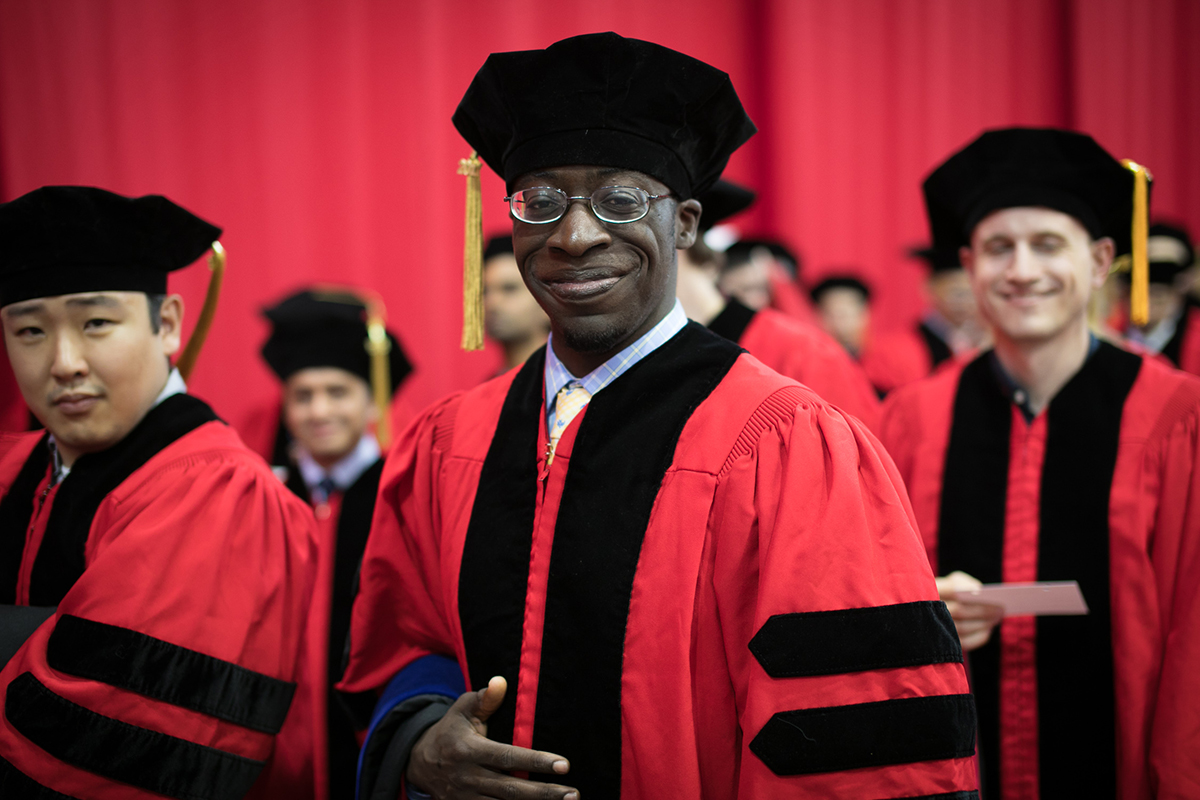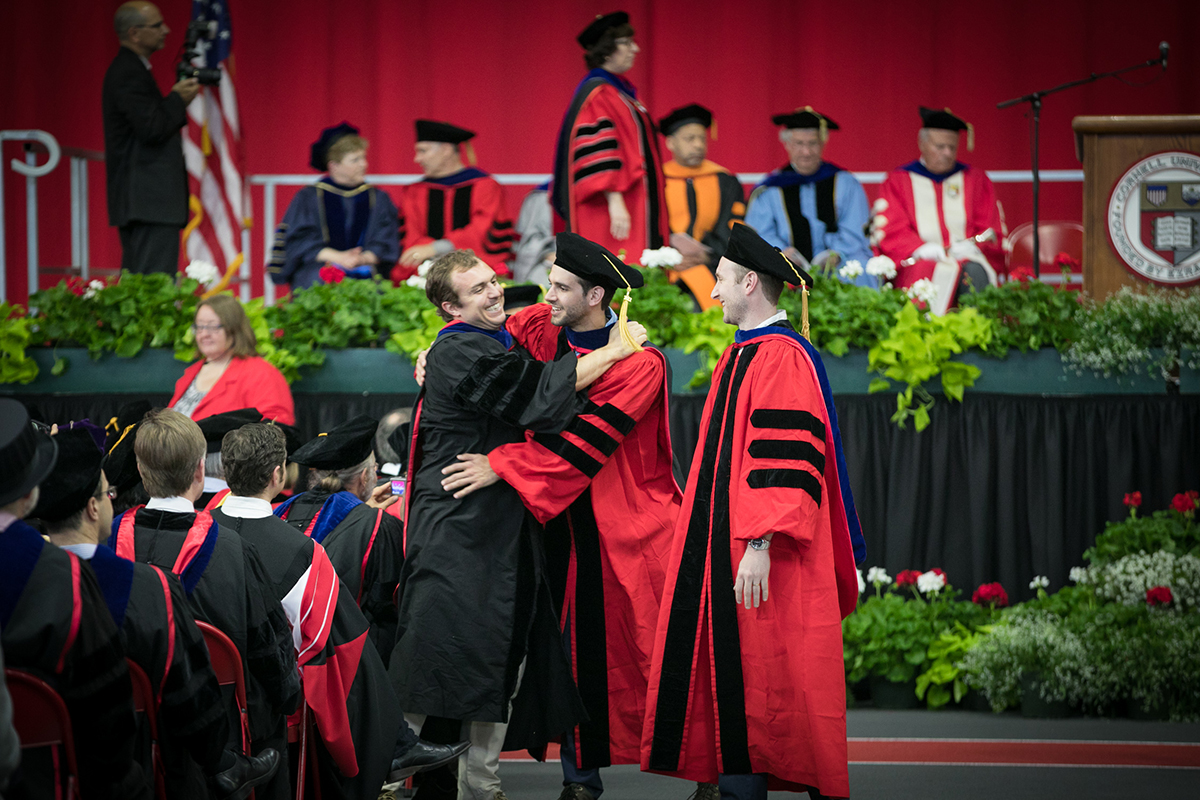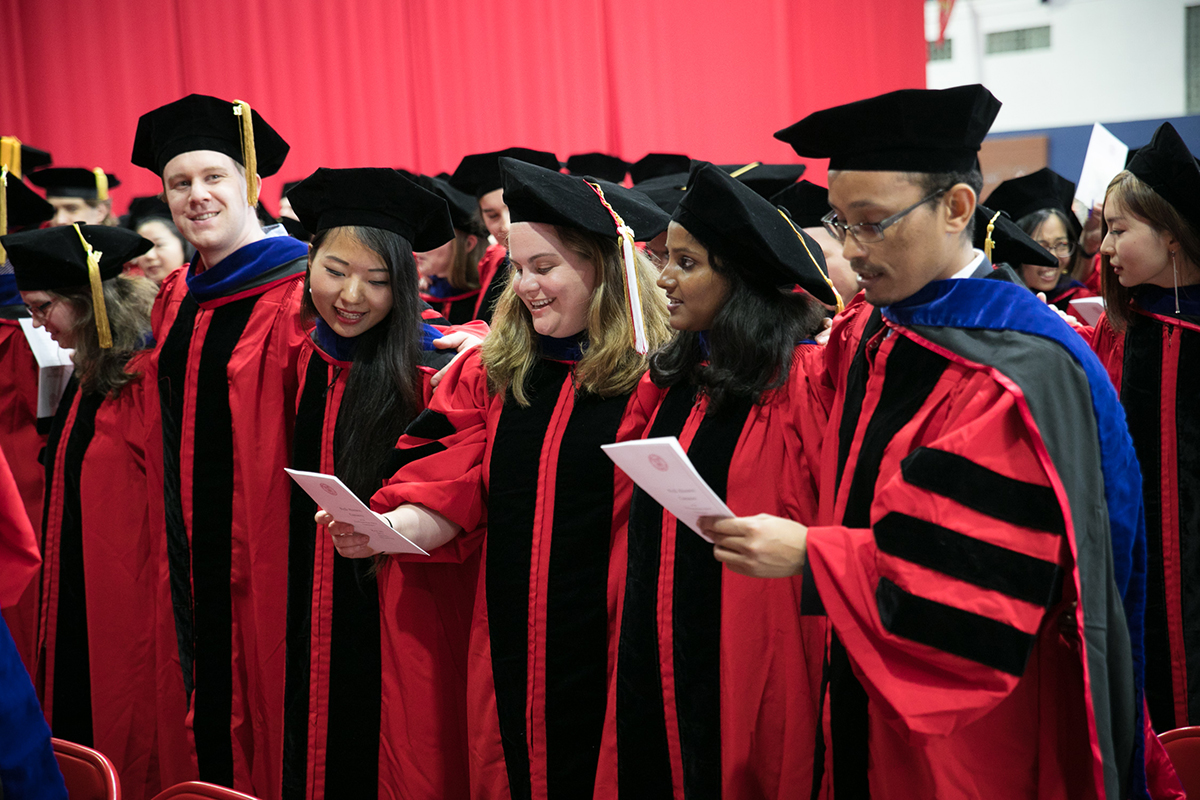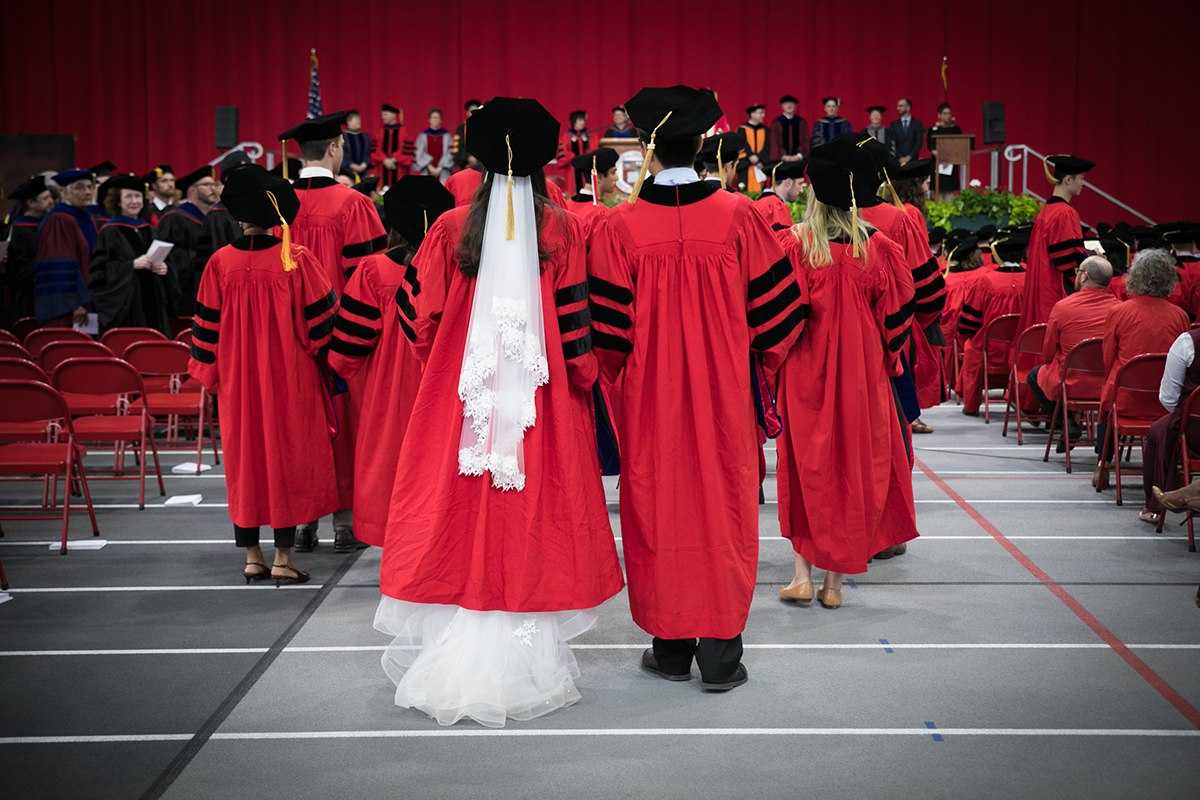Pollack: Ph.D.s can inform discourse, model expert thinking
By Nancy Doolittle

David Lynch, who earned his doctorate in materials science and engineering, said that learning how to do research in the lab, not only in what to do but in how to budget time, was one of the more challenging aspects of pursuing his degree. He credits his friends in the program – including his fiancé Teresa Kao, who will earn her doctorate this summer – with helping him with this challenge.
For Erica Levenson, earning her doctorate in musicology also meant budgeting time, keeping a consistent writing schedule during the three years of writing her dissertation. But, she said, “my professors in my program were very supportive along the way.” Levenson said she is “really happy” for the next stage of her life.
Lynch and Levenson were two of the nearly 300 students honored May 27 at the 25th annual Ph.D. recognition and hooding ceremony.

Two other new Ph.D.s – Rusen Yan, in the field of electrical and computer engineering, and Lin Wang, in the field of biochemistry, molecular and cell biology – had an additional reason to celebrate: Earlier in the day, they were married on Libe Slope. Both are from China and will stay at Cornell, living in Hasbrouck Apartments while Yan pursues postdoctoral studies.
Yan and Wang – her bridal gown trailing from under her academic robe – were the last to march in the academic procession that opened the ceremony in Barton Hall.
Following an introduction by Senior Vice Provost and Dean of the Graduate School Barbara Knuth, Cornell University President Martha E. Pollack congratulated the newly minted Ph.D.s in a speech that challenged them to “be an expert in your own discipline” and to “model the ways in which experts think and draw conclusions in everything you do.”
“You have just completed one of the most demanding and exciting intellectual journeys in academic life, and we are so pleased to recognize your achievements,” Pollack said.

“While you come here today from an amazing breadth of disciplines, you share one thing in common: Each of you is the world’s expert on some important topic,” Pollack continued, noting that since there are about 7.5 billion people in the world, “you know more about whatever you wrote your dissertation on than 7 billion, 499 million, 999 thousand 999 of them.”
This expertise is born out of persistence, critical thinking and conclusions based on evidence, Pollack said: “You have learned what is required for an idea to be intellectually defensible, and you have learned how to make a rigorous defense of your ideas.”
Those skills will be critical for any career path, she added, especially in the face of the growing trend in society over the past decade to disregard evidence when shaping both individual beliefs and public policy.
“No matter what your trajectory after you leave Cornell, and regardless of whether you have done your work in a STEM field, the social sciences, the humanities or another area of inquiry, you understand what it means to draw conclusions based on evidence, and to build an evidence-based defense for ideas. Thus, you can be vital contributors to the informed discussion upon which sound public policies should be built,” Pollack said.

“Perhaps you can mentor young people – teaching them both about your academic field and about how to improve critical-thinking skills. Perhaps you can bring your expertise to your community, running for a local office or serving on a municipal committee, or starting an outreach organization … perhaps you can make it a point to communicate with those outside your field about what you are doing and why it matters – and, importantly, about what defensible ideas look like,” she continued.
“More than ever, we are counting on you.”
Following the individual “hooding” of each candidate by Knuth and Provost Michael Kotlikoff, signifying their acceptance into the community of advanced scholars, the Cornell University Wind Symphony played Cornell’s alma mater, and graduates joined friends and family members at a reception in Barton Hall.
Media Contact
Get Cornell news delivered right to your inbox.
Subscribe